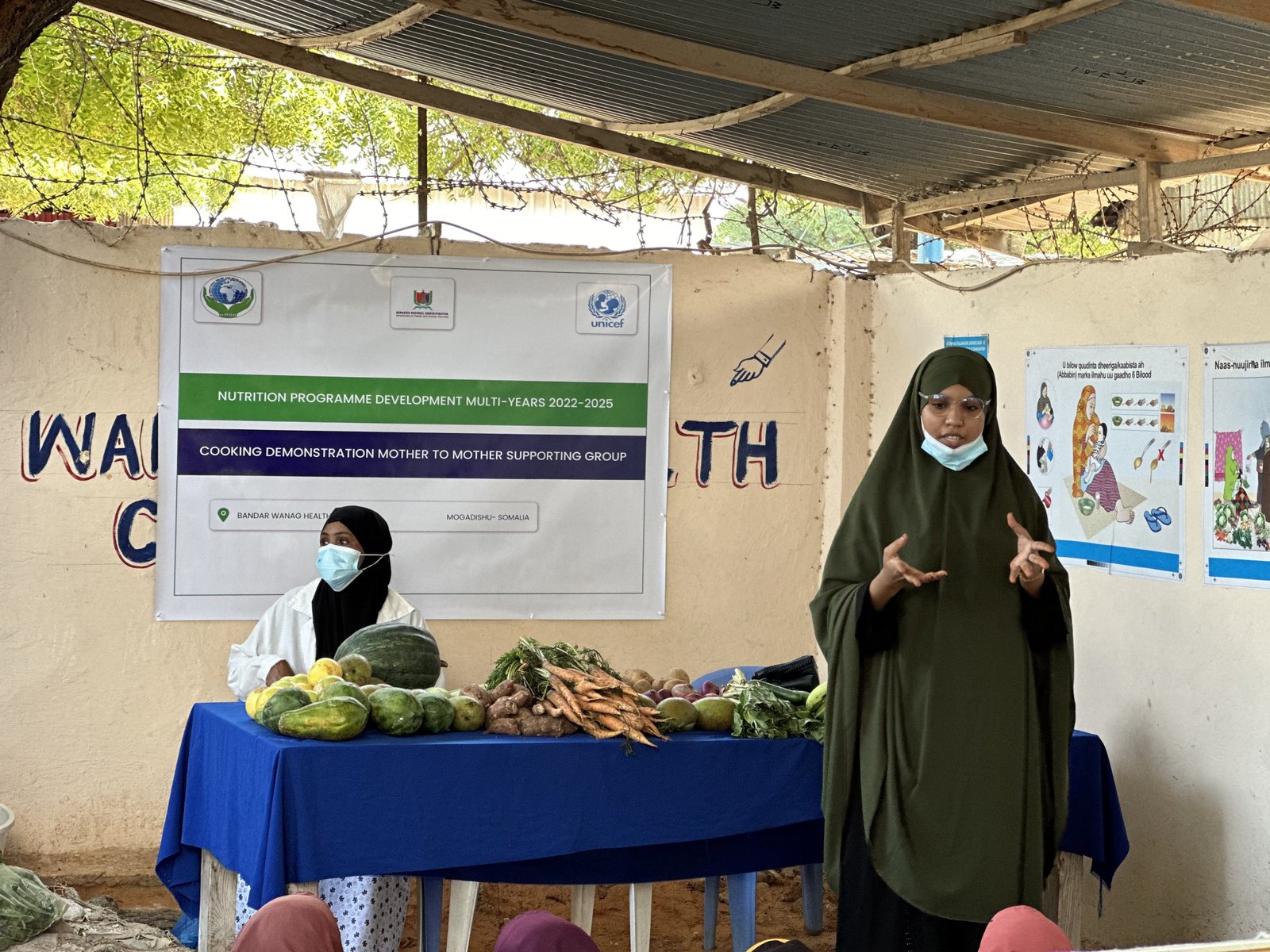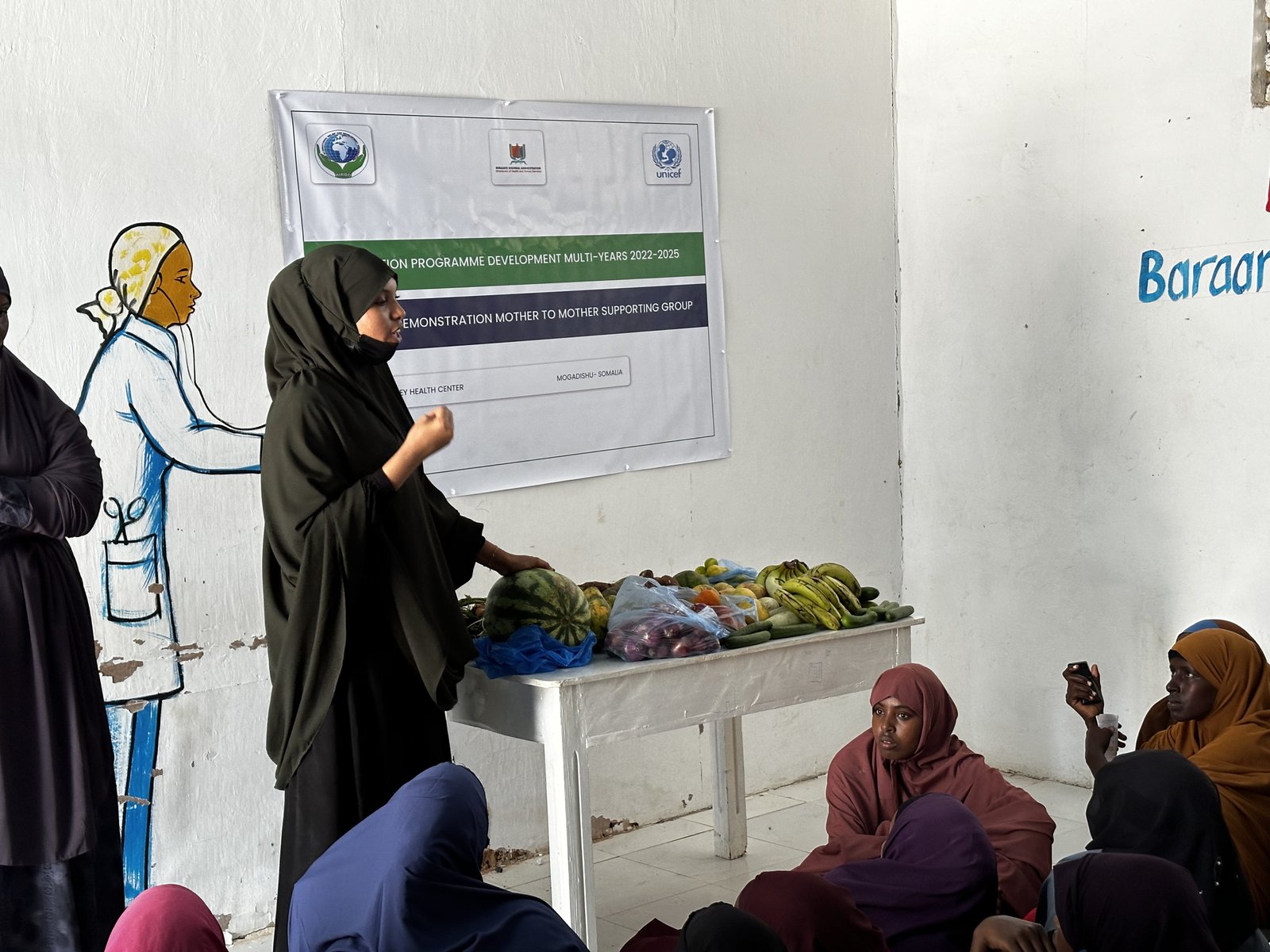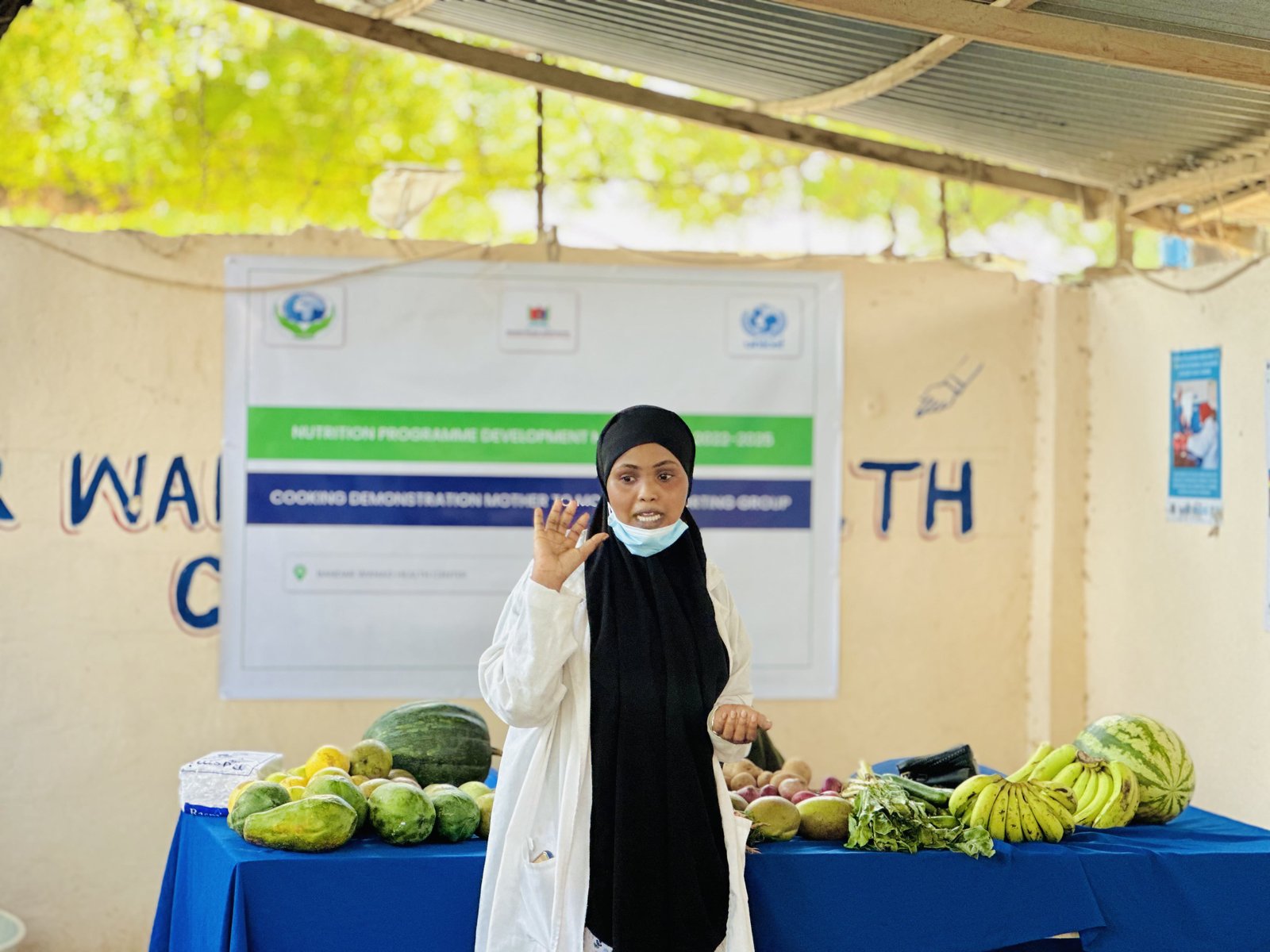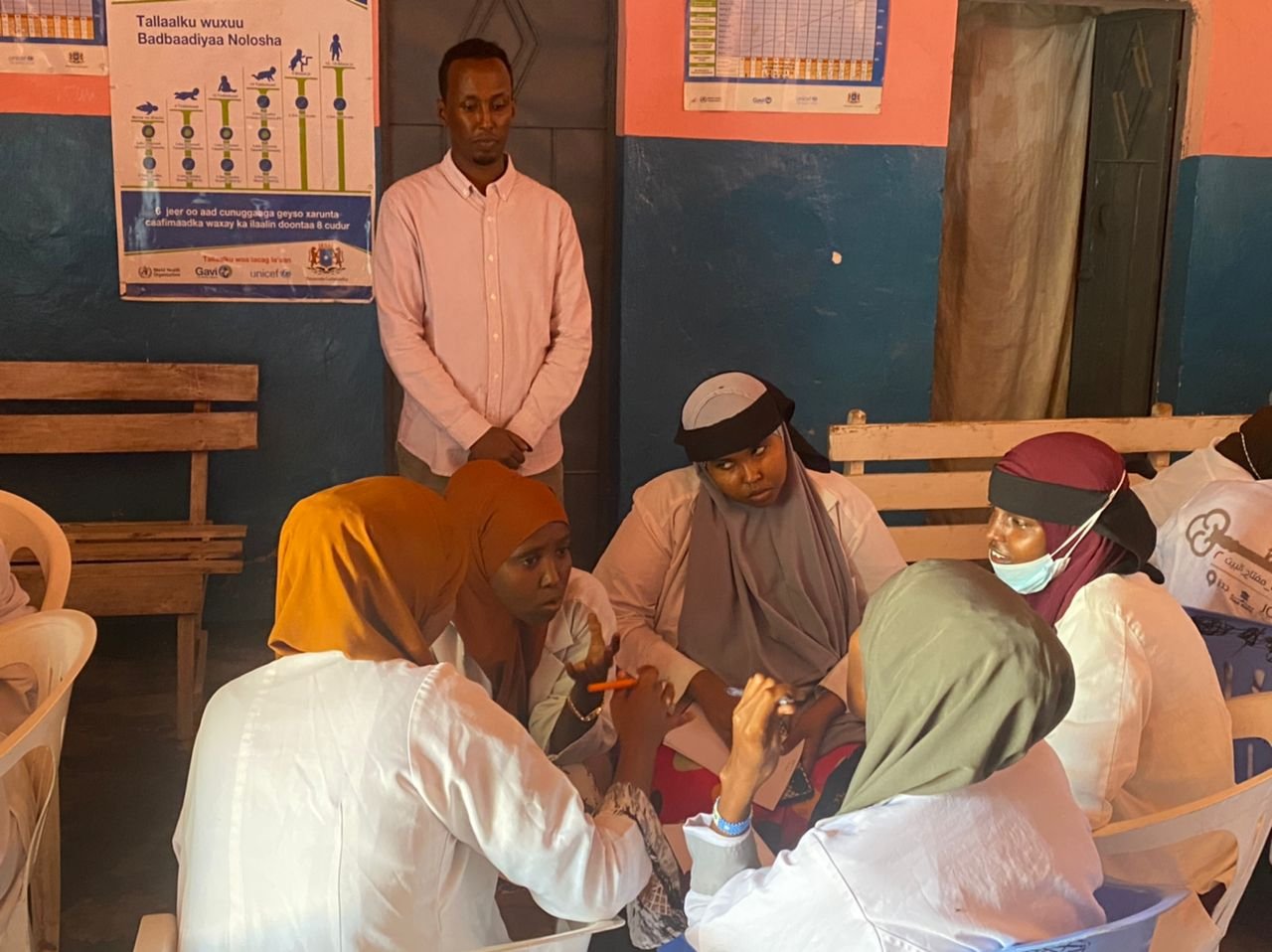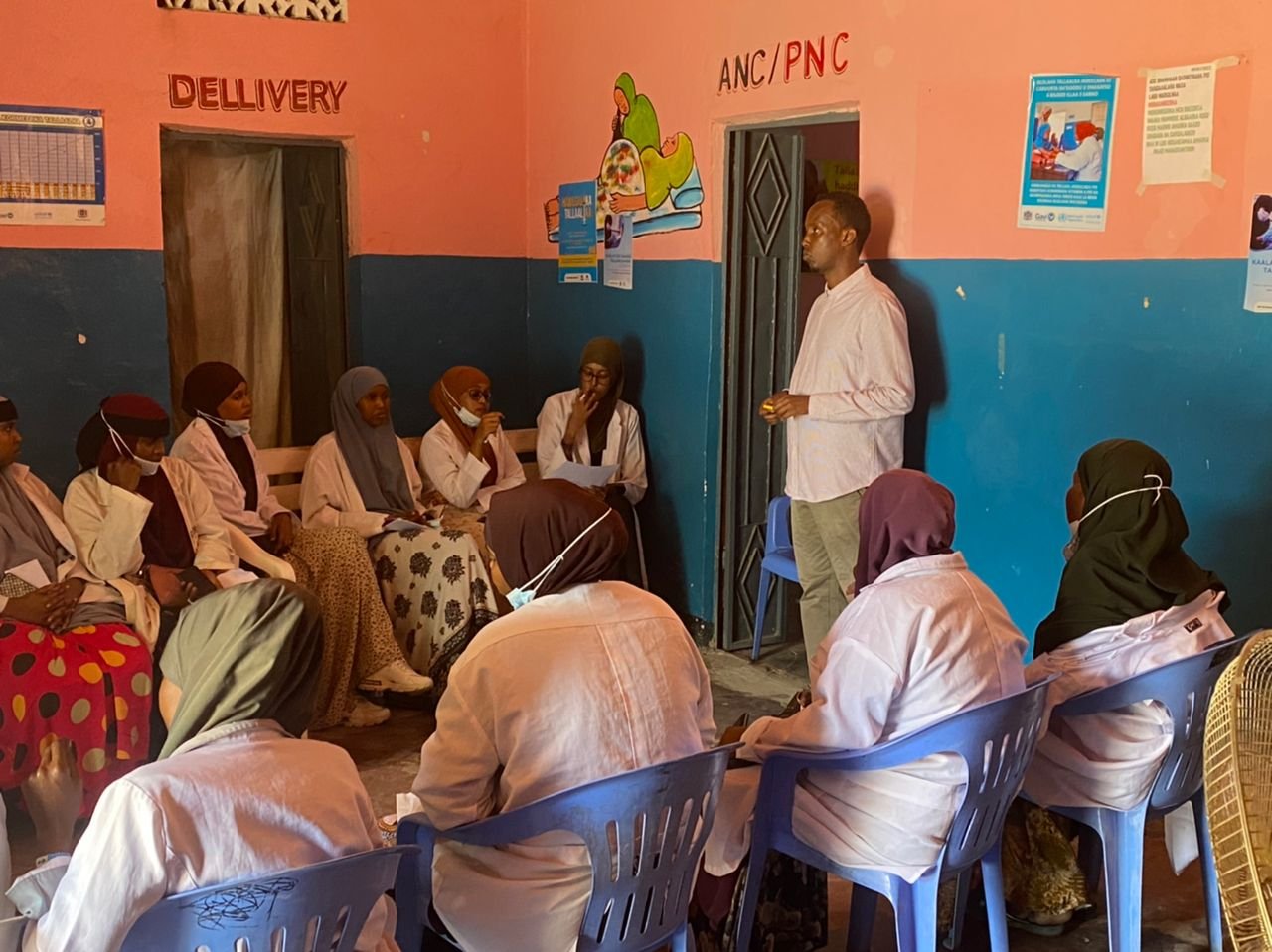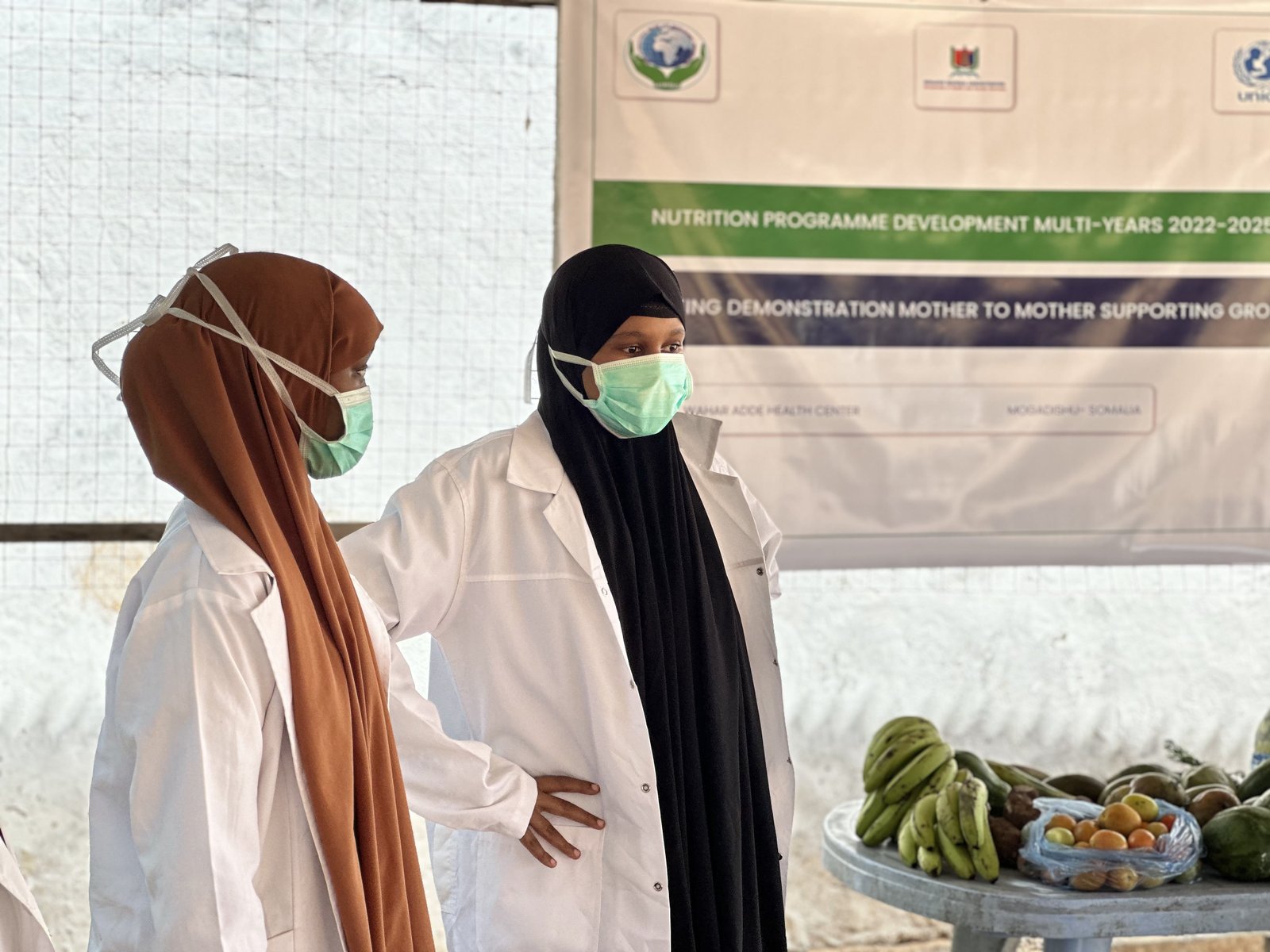HEALTH & NUTRITION
NUTRITION
For decades, Somalia has been in a fragile state characterized by chronic conflicts, droughts, famine, floods, and disease outbreaks, the latest catastrophic event being a drought in 2022 that killed 43,000 people, half of whom were children. These natural disasters and man-made hazards are the key drivers of Somalia’s perennial humanitarian crisis, internally displacing millions of people and fueling food insecurity and malnutrition, the latter compounded by poor feeding practices among vulnerable communities in Somalia.
An estimated number of 1.7 million children aged 6-59 months face acute malnutrition in 2024 including 430, 000 who are likely to be severely malnourished. Malnutrition persists in Somalia due to years of conflicts, the collapse of basic social services and erosion of resilience over-time. Many such children are not getting enough food in both qualitative and variety. High number of these children and their mothers suffer from Anemia and Vitamin A deficiency. They are more susceptible to infectious diseases and at risk of developing severe acute malnutrition.
HIRDO seeks to empower communities and strengthen systems to prevent malnutrition before it occurs. We collaborates with WFP and UNICEF to implement projects addressing malnutrition in Mataban (Hiran region) and Heliwa (Benadir region) with special focus on
Nutrition Interventions
HIRDO is currently implementing nutrition project with UNICEF in Heliwa district, Benadir region through Out-Therapy Patient (OTP) treatment for children under five and PLW affected by Moderate and Acute Malnutrition. We are supporting three OTP centers in Bandarwanaag, Wahar Adde and Gubadley with supplementary nutrition supplies.
HIRDO is also implementing nutrition project with the support of WFP through Targeted Supplementary Feeding Program for severe malnourished children and pregnant and lactating women affected the drought emergencies especially those in IDP camps and host communities in Heliwa district( Benadir region) and Mataban (Hiran region). We also provide food assistance for TB and HIV patients to support in drug resistance during treatment.
HEALTH
A fair chance in life begins with a strong, healthy start. Unfortunately, many children are, still deprived of this in Somalia. Four in 100 Somali children die during the first month of life, 8 in 100 before their first birthday, and 1 in 8 before they turn five. This accounts for more than 60 percent of the under-five deaths in the country. In addition to this, 1 in 20 women aged 15-49 die due to pregnancy- or birth-related complications every year.
More than 80 percent of newborn deaths are due to prematurity, asphyxia, complications during birth, or infections such as pneumonia, diarrhea, measles and neonatal disorders. These deaths can be prevented with access to well-trained midwives and nurses during antenatal and postnatal visits and delivering at a health facility. Additionally, access to clean water, and disinfectants, handwashing, breastfeeding within the first hour, skin-to-skin contact, proper cord care, and good nutrition are proven solutions. Too often, these simple cost-effective interventions are out of reach of the mothers and babies who need them most.
Low immunization levels and inadequate access to quality healthcare and life-saving supplies erode children’s chances of surviving past infancy and developing to their full potential. The health risks for children in emergencies are higher. Life-saving health services are often unobtainable or unreachable, making newborns, children, young people and mothers especially vulnerable to harm.
Health Interventions
HIRDO collaborates with the UNICEF and WHO to provide primary health care to deliver high quality maternal, neonatal, child and adolescent health services, EPI as well as Safe maternal delivery for pregnant mothers. We provide primary healthcare services, particularly at the community level, to help achieve universal health coverage in Somalia. We also work with partners to strengthen health systems to deliver integrated and innovative services for Somali children, youths and women of reproductive age. The following are at the heart of our efforts to end preventable maternal, newborn and child deaths in Somalia:
